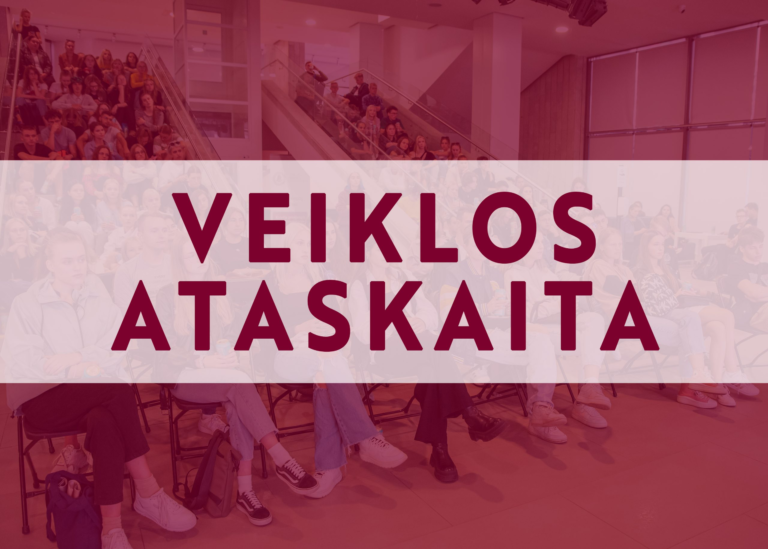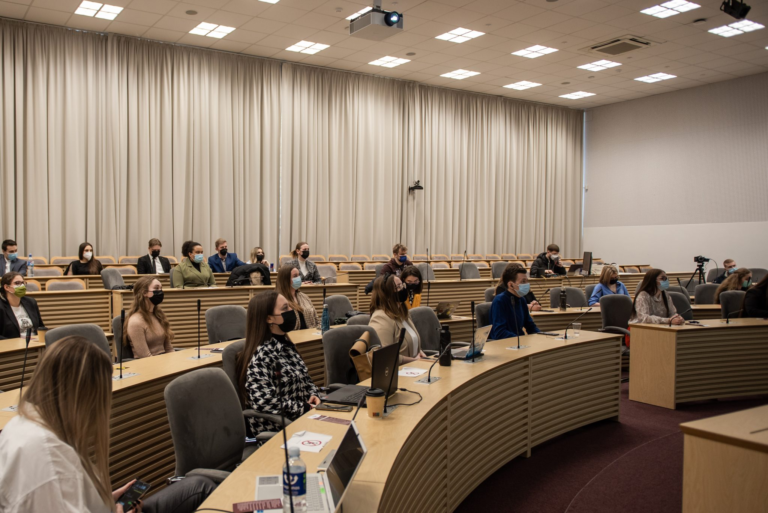Updated Code of Ethics

The Code of Ethics of Vytautas the Great University (VDU) is a document that is important not only for the university itself, but also for its entire community. The updated Code of Ethics further defines the relationship between the university community, expands the concept of academic integrity, includes a provision for the prevention of sexual harassment, and many other things.
By signing the contract with VDU, the student undertakes to comply with this code and the norms of behavior described in it. Chairman of the Ethics Commission Tomas Berkmanas and student representatives Ieva Vengrovskaja and Monika Ražauskaitė, who were active members of the working group for updating the Code of Ethics, comment on the updates in more detail.
How was the work and coordination of the Code of Ethics working group?
There were no problems, everyone got involved very enthusiastically, everyone found the work interesting and engaging, and the atmosphere was good. I think we have reached a good result, I am very happy that the code is the product of the work of the entire VDU community. After the seminar where I presented the changes, we received a lot of feedback, which we took into account, and I think we have a good result - says T. Berkman.
What changes will the updated Code of Ethics bring to the life of the university community?
It goes without saying that the Code of Ethics is important for every member of the community, it ranks as one of the most important documents of the university. Our proposed draft code is much more detailed, much broader, we aim to answer all the questions and problems that arise as much as possible - says T. Berkman.
How is this document important specifically for each university student?
The code of ethics shows what the ethics of the community are, what are the general rules, norms and values at our university. It is important for all students: those who come to higher education so that they understand what academic ethics means, what is the difference between a university and a school, what are the norms here, and for those who are already studying - so that every student can understand whether in some particular in the situation, the behavior of the teacher or another student is ethically correct - I. Vengrovskaya shares her thoughts. This is a document that will help every student feel a little safer, to feel assured, because there are situations where you don't know the answers, you don't know how to act, which is why this document is the place where all this is described - comments M. Ražauskaitė.
Having contributed to the updating of the VMU Code of Ethics, what changes do you think this document will bring to the life of the university community?
The updated Code of Ethics is significantly broader, the document contains defined concepts, and provides many more examples of ethical violations. It is very important that we can see it much more realistically, so that it is not about some space or about some things that are incomprehensible to the student, but that the student, opening this document, can see his real situation or a certain event and know what he can do about that situation, how to solve it, where to turn - comments I. Vengrovskaja.
What essential observations and suggestions did you bring to the working group as a student representative?
We started our work in the working group by bringing the initial version prepared by the Student Representation. Then we compared them, tried to glue them together from several other options. Those main ideas were about how the students themselves could stay within certain limits (ethically). Our communication with teachers sometimes becomes immediate and this puts a foot in the ground, because we ourselves do not feel safe if it is from the teacher's side, just as teachers do not feel safe when students provoke them to behave unethically. This is probably the main idea we came up with - to describe all of this and leave no room for interpretations - M. Ražauskaitė shares her observations.
May 17 has been confirmed updated VMU Code of Ethics, which is put into use and applied immediately after approval. We encourage all students to stay on top of it and read all situations or events described in the code to ensure not only your own ethical behavior, but also the behavior of faculty and other students toward you.






